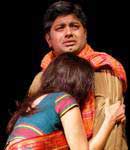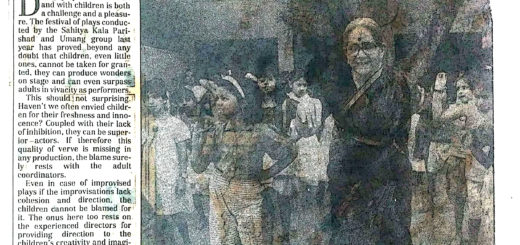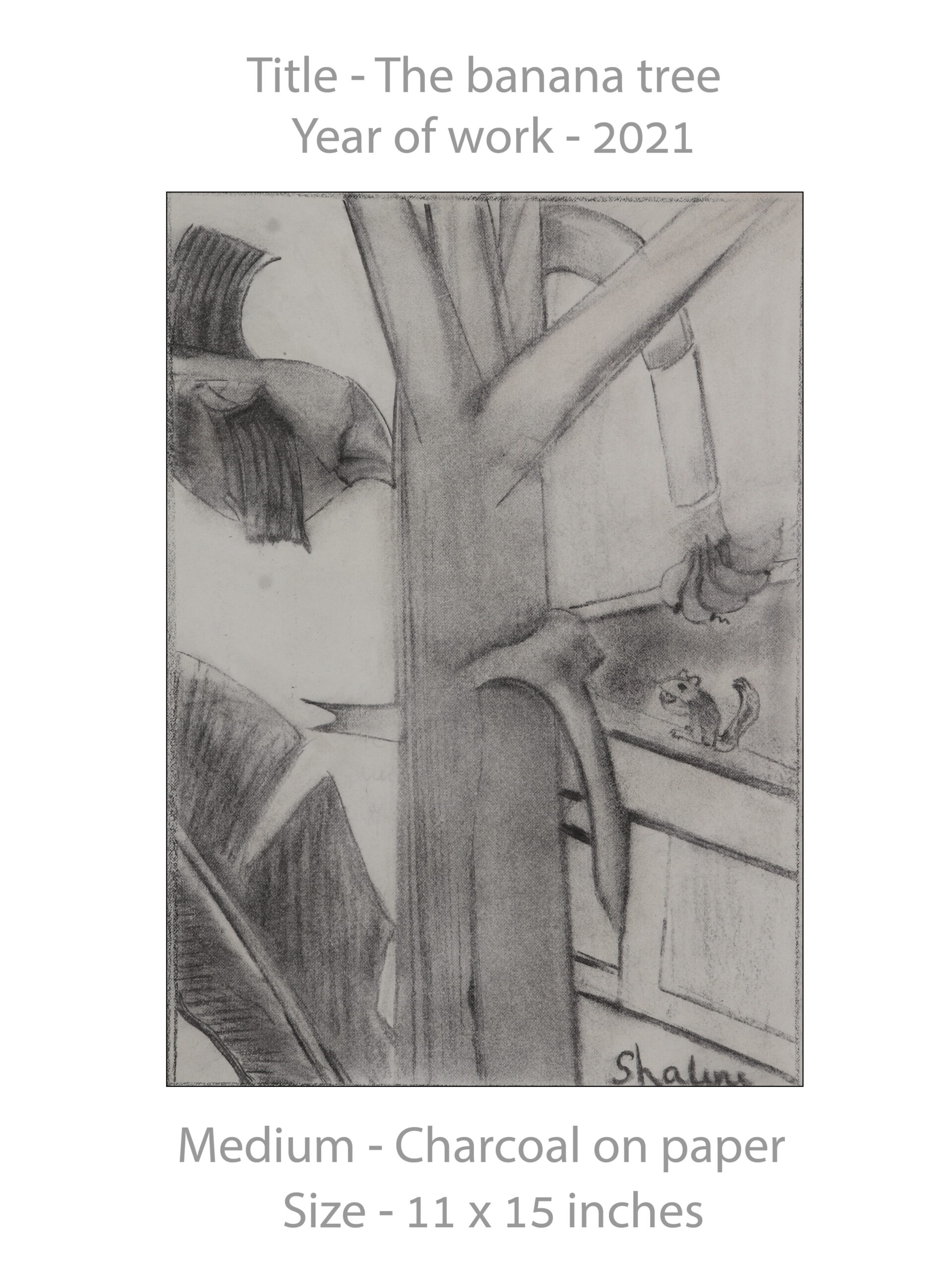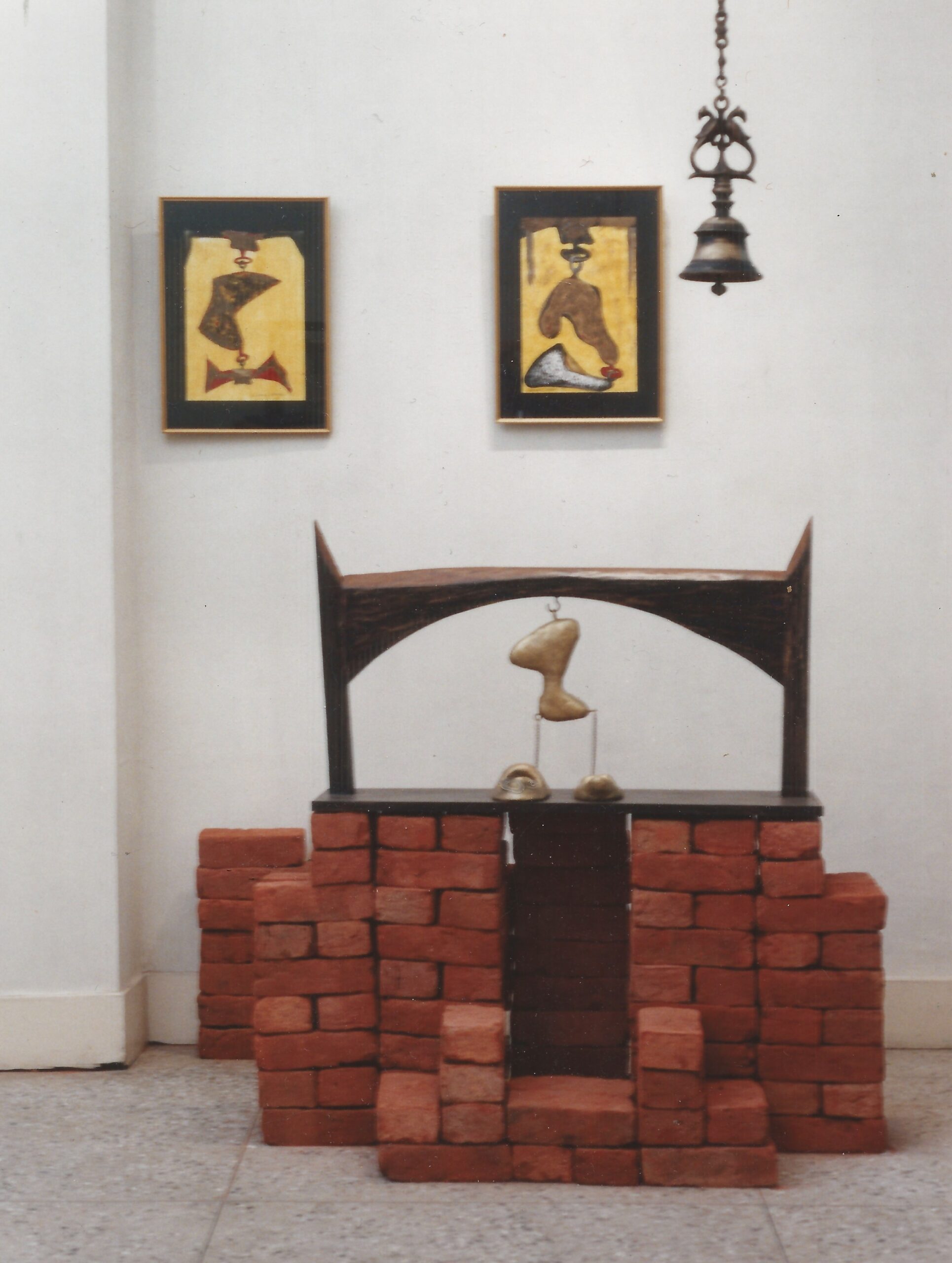Theatre Review: Pagla Ghoda by Gouri Nilakantan
A scene from the play
Pagla Ghoda of Badal Sircar was performed by a newly formed amateur group of Gurgaon AAKUTAM directed by Mahesh Prasad at Epicenter on the 17th of April 2011. Pagla Ghoda cleverly uses contemporary situations and social problems to life in death attitude of modern life. The play sees four drunk young men in the cremation grounds talking about the love in their lives. They keep themelves entertained through stories about these women that they have loved and lost in their own manner. The anguish in the characters has been beautifully crafted by Badal Sircar that has strong social moorings. While the play at one level speaks on psychological and social problems with the images of a badly bruised Malati or a crying Laxmi it also speaks of the four men and their deep relationship with the women.
While Mahesh Prasad has clearly made an honest interpretation of the play the hidden problems lying within the play and subtext could not reach out to the audiences. The actors were too deeply involved in speaking their lines with clarity and focus loosing sight of their characterization. The female actors struggled to keep pace with the better counterparts, the men. The female actors often broke into hysteria, sobs and tears and thus giving a single dimension to their acting style. At one level the play is also about the residue of the middle class to have failed to adjust and align and ceases to aspire amongst the intellectually alive urban middle class. These social adjustments were lacking in the play as the acting appeared tired and fatigue seems to have hit both the audiences and the actors as the play over ran its time limit by a good half an hour.
The lighting of the play was extremely well designed and significantly added value to the mood of the play. The quiet introspection and the inner contemplation of the characters were used imaginatively by the choice of dim lights and blue overtones. The set design also needs special mention as was well crafted and the use of the space provided was covered excellently with good preferences of fabric material and wood.
Pagla Ghoda is about the guilt of men in personal and social relations with a continuation of the conventional mode of living. The acting of the character Laxmi must be mentioned as it was genuine and spoke well. Perhaps Sircar wants each of his characters to suffer from the awareness of their social responsibility. It is important for the director to read that sense of guilt, responsibility and social problems so that it can further enhance the acting style, convention and speech patterns used in the production.
As the body of the actor and its relation on stage is one of the immediate concerns of Badal Sircar the director has correctly used breakdown of the conventions of theatrical time and space. The production would have been even more interesting if the simultaneous action of the play had been broken down by using the female actors as the focal points of entry an exit and also if non sequential modes of narration had been used more often. Overall the play could not speak well enough despite the technical excellence as it requires more dramaturgical analysis and theatrical inputs.










